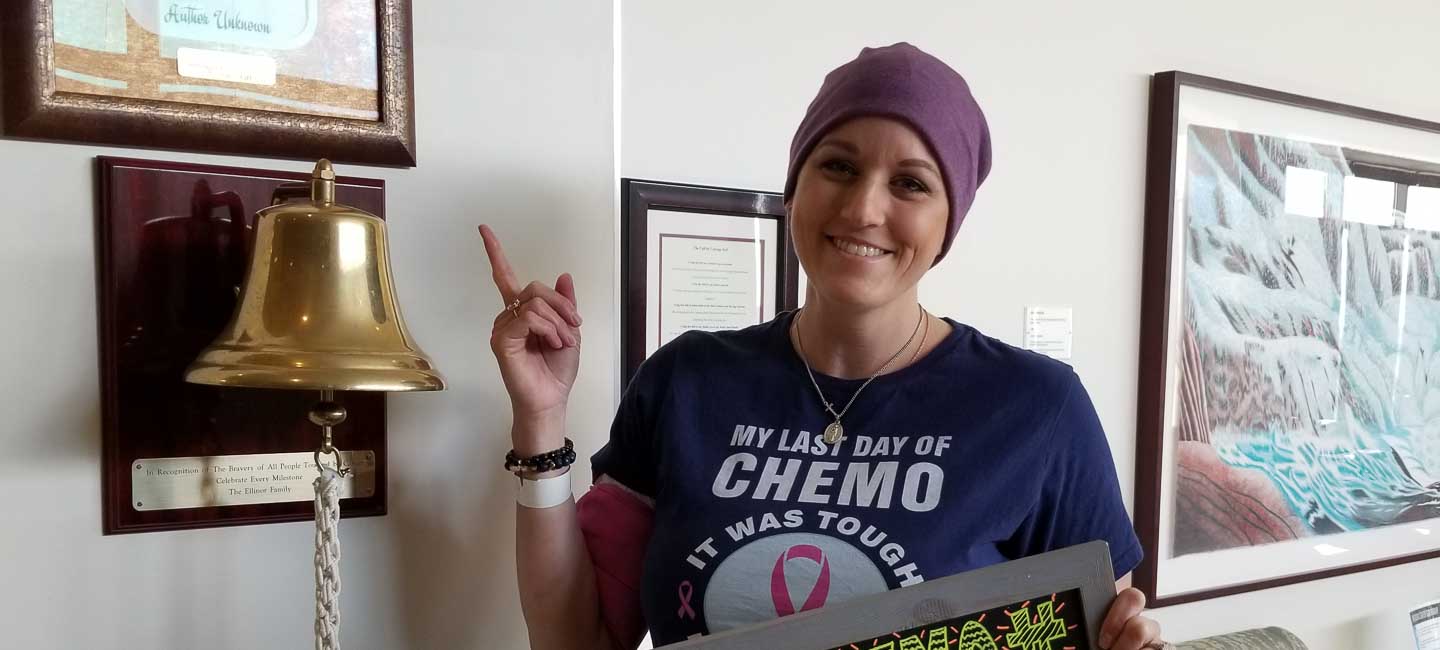New Mom Battled Breast Cancer While Pregnant
Jessica Purcell jokes that she always finds the toughest, craziest path to take in life. She’s seen a lot as a captain in the Army and as a civilian employee at Central Command at MacDill Air Force Base, but says Aug. 24, 2018, was the most difficult day of her life. That’s the day doctors diagnosed her with breast cancer. She was just 35 years old, a wife, a mother and nine weeks pregnant with her second child.
Purcell says time stood still as doctors delivered the news. She was shocked and a thousand thoughts raced through her mind as she wondered what would happen to her baby.
Purcell suspected something was wrong back in 2017 when she noticed a lymph node in her left armpit was hard as a rock. Her doctor said it was just an infection that would clear up, but it never did. About a year later, Purcell felt a lump on her breast while breastfeeding her daughter. She had developed mastitis, which is inflammation in the breast that is often caused by a clogged milk duct, and thought it might be related. Around this time, she got pregnant and suffered a miscarriage. Purcell made an appointment for a mammogram, but the day before the appointment, she learned she was pregnant again, so she canceled it.
When she was eight weeks pregnant, she saw her doctor for an ultrasound. Purcell was terrified of losing this baby. During this appointment, she mentioned the lump on her breast and the hardened lymph node. The doctor said it was probably just a cyst but ordered an ultrasound anyway. The ultrasound led to a biopsy of the lump and the lymph node and a cancer diagnosis a week later.
Purcell didn’t think a pregnant woman could undergo surgery and chemotherapy, but that’s exactly what she did. She had a left radical mastectomy, surgery to remove her lymph nodes and 12 rounds of chemotherapy with her son still in her womb.
Dr. Hung Khong, a breast oncologist at Moffitt Cancer Center, says it is rare to be diagnosed with breast cancer during pregnancy, but it does occur in about one in every 3,000 pregnancies. He says the best option when treating breast cancer in a pregnant woman is to do surgery first to remove the tumor and wait to begin chemotherapy until the second trimester, when the baby’s organs are fully developed. He says chemotherapy has been shown to be safe in the second and third trimester. However, a woman must wait until after giving birth to undergo radiation or hormonal therapy.
After giving birth, Purcell wanted to feed her newborn son breast milk but knew she would have to rely on donors to supply the nutrients he needs. Late one night, she posted on Facebook asking for donor breast milk. She thought maybe one or two of her friends would respond, but by morning her post had gone viral.
She never expected it would get that much attention. Her phone began ringing off the hook and she even had a woman stop by her house, extra breast milk in hand, ready to give it to her. Purcell couldn’t believe the outpouring of love and support from people around the world, as far away as Germany.
This isn’t the first time Purcell has made headlines. Several years ago she was driving over the Sunshine Skyway when she helped coordinate a rescue mission for a man whose car blew a tire and was knocked off the bridge by a gust of wind from a semi-truck.
She says she doesn’t consider herself a hero. Instead, she just did what any decent human being would have done.
Now she’s showing her strength again. Purcell underwent four additional rounds of chemotherapy after giving birth to her son, Jameson, who is named after her grandfather that passed away from cancer when she was just 10.
As she rings the bell signaling the end of chemotherapy treatment, Purcell says she is ecstatic to finally be done with this hurdle. She says she just did what she had to do and is an ordinary girl with extraordinary circumstances. Purcell will undergo six weeks of radiation next month.



